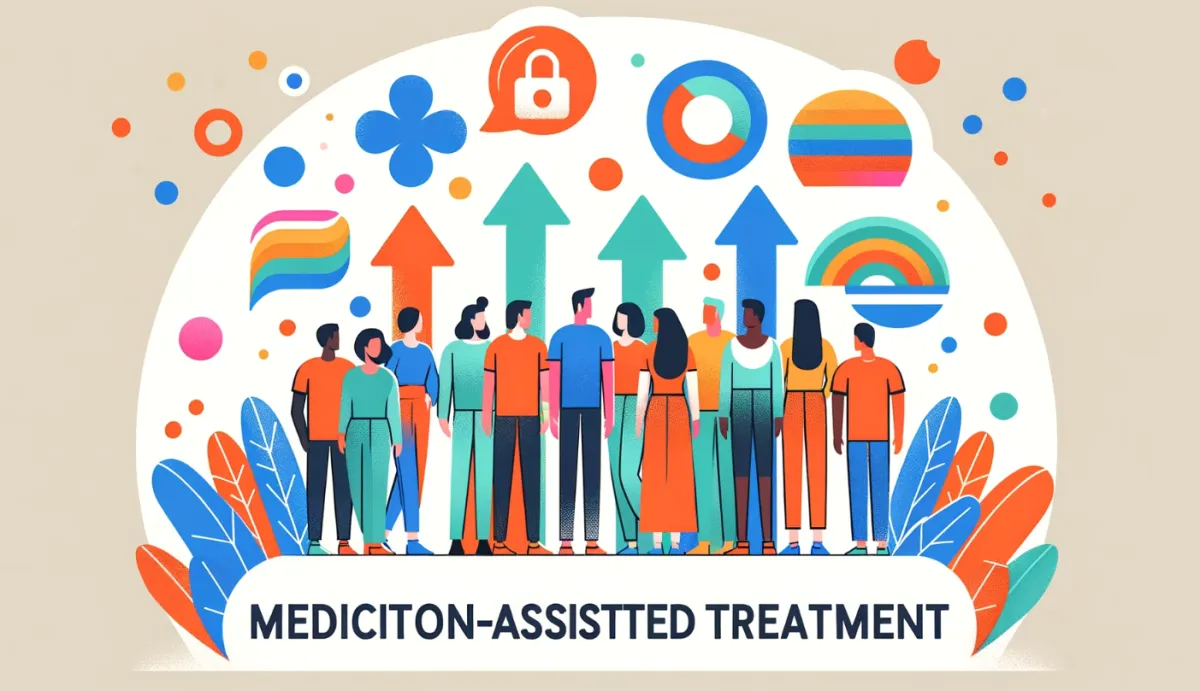
Here are three notable studies on Medication-Assisted Treatment (MAT) for opioid addiction
Here are three notable studies on Medication-Assisted Treatment (MAT) for opioid addiction:
Study 1: A systematic review explored the prevalence and factors linked to opioid overdoses during MAT. It highlighted that patients with a shorter treatment duration, younger age, physical symptoms, and benzodiazepine misuse had higher overdose risks (PubMed).
Title: Factors Associated with Opioid Overdose During Medication-Assisted Treatment: How Can We Identify Individuals at Risk?
Summary:
This study, conducted in Ontario, Canada, examined over 2,300 patients undergoing Medication-Assisted Treatment (MAT) for opioid addiction to identify factors associated with an increased risk of overdose. They grouped participants based on overdose history: no history, lifetime history, and emergency department (ED) visit for overdose in the last year. Their analysis revealed that 24% of participants reported a lifetime overdose history, and 8% had visited an ED for an opioid overdose in the past year.
Key findings included that individuals with a recent ED visit for overdose were generally younger, reported more physical symptoms, and were more likely to misuse non-prescription benzodiazepines. Interestingly, a longer duration in MAT was associated with a lower overdose risk. The researchers concluded that identifying these factors could help design targeted interventions to reduce overdose risk, emphasizing the protective role of extended treatment duration.
Takeaway:
This study underscores the importance of understanding patient risk factors during MAT. Longer treatment duration offers a protective effect, while factors like younger age, benzodiazepine misuse, and physical symptoms signal a higher risk. Identifying and intervening with at-risk individuals can improve outcomes and support their recovery journey.
Study 2: A second review addressed the significant comorbidity between opioid addiction and depression, emphasizing the need for comprehensive treatment (PubMed).
Title: The Reality of Comorbidity: Depression and Drug Abuse
Summary:
This article, authored by Nora D. Volkow, explores the significant overlap between depression and drug abuse, highlighting the challenges associated with treating individuals suffering from both conditions. Comorbidity between these disorders is common due to complex genetic, environmental, and psychological factors.
The study discusses how depression can increase susceptibility to substance use disorders and vice versa. Self-medication, neurobiological changes, and shared risk factors often contribute to this bidirectional relationship. Furthermore, the presence of one disorder can exacerbate the severity and treatment difficulty of the other.
Takeaway:
This article emphasizes the importance of integrated treatment approaches that address both depression and substance abuse simultaneously. Understanding the genetic, psychological, and environmental underpinnings of this comorbidity is crucial for improving therapeutic outcomes. By recognizing the interplay between these disorders, healthcare professionals can tailor more effective, comprehensive treatment plans that enhance recovery rates and support long-term well-being.
Study 3: An observational study examined predictors of opioid overdose during MAT to inform better patient care (PubMed).
Title: Factors Associated with Opioid Overdose During Medication-Assisted Treatment: How Can We Identify Individuals at Risk?
Summary:
A research team led by Sameen Zafar conducted a comprehensive study to identify risk factors associated with opioid overdoses among patients undergoing Medication-Assisted Treatment (MAT). The study included over 2,300 participants from Ontario, Canada, divided into groups based on their overdose history: no history, any lifetime history, or an emergency department (ED) visit for overdose in the last year.
The key findings highlighted that:
24% of participants had a lifetime history of overdose.
8% had visited an ED for opioid overdose within the last year.
Younger individuals and those with a history of non-prescription benzodiazepine use were more likely to have overdosed.
Participants reporting more physical symptoms had a higher risk of overdose.
Longer participation in MAT was associated with a lower overdose risk.
Takeaway:
This study reveals that a significant portion of individuals enrolled in MAT are at risk of overdose due to identifiable factors like age, drug misuse, and physical symptoms. The findings underscore the need for tailored intervention strategies and support the importance of prolonged participation in MAT to reduce the likelihood of an overdose. Identifying and mitigating these risk factors can significantly improve patient outcomes and help them achieve sustained recovery.
These studies illustrate MAT's effectiveness while stressing the importance of personalized interventions to reduce overdose risk.
Contact US Today if you or a loved one needs help fighting their addiction with Opioids.
HWOANY
1-888-995-3405